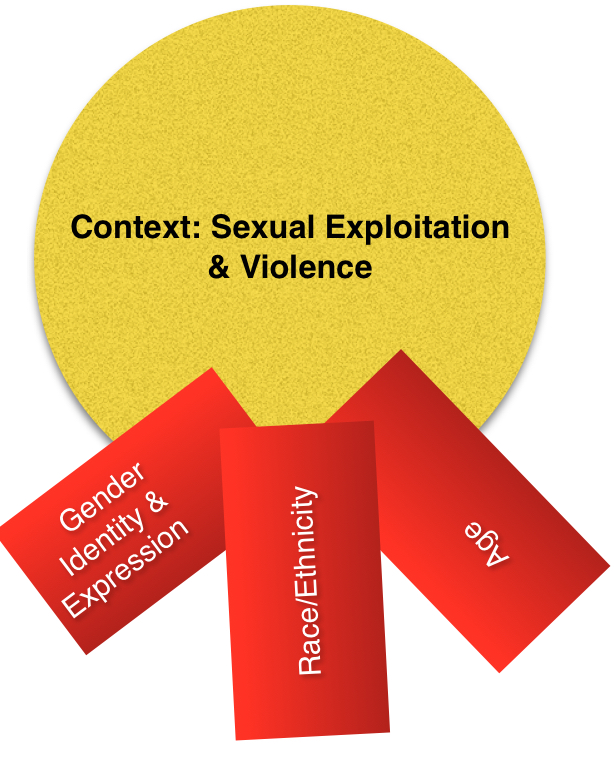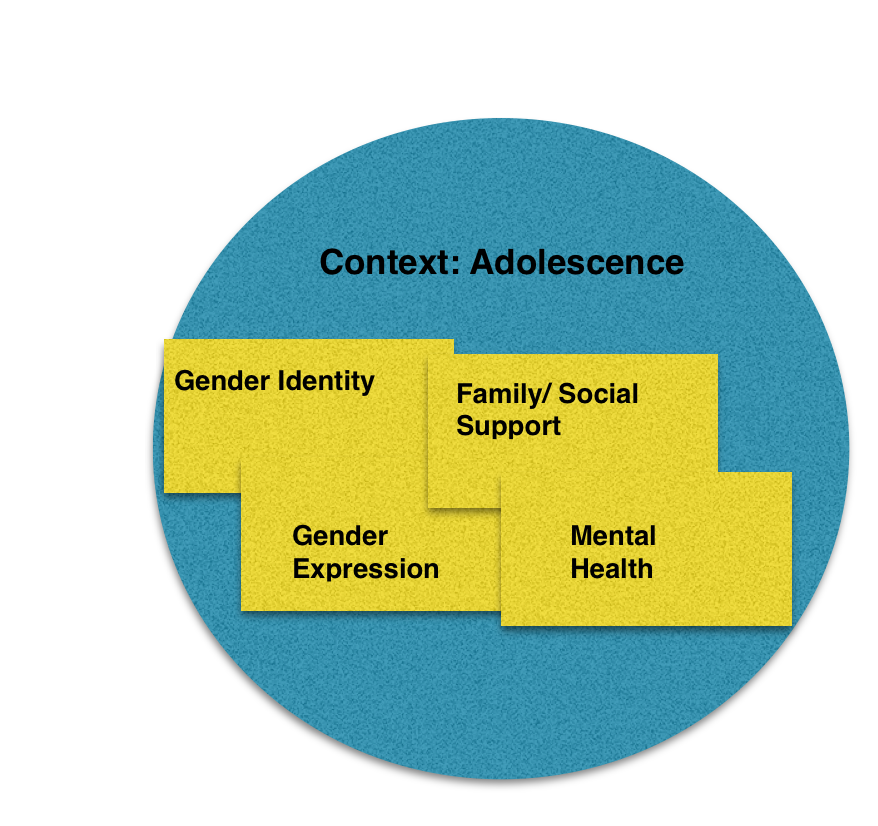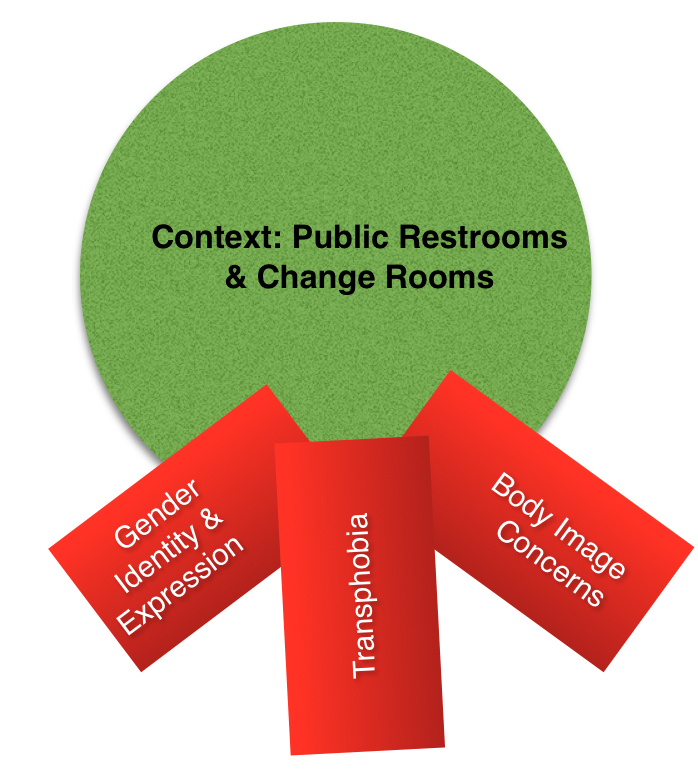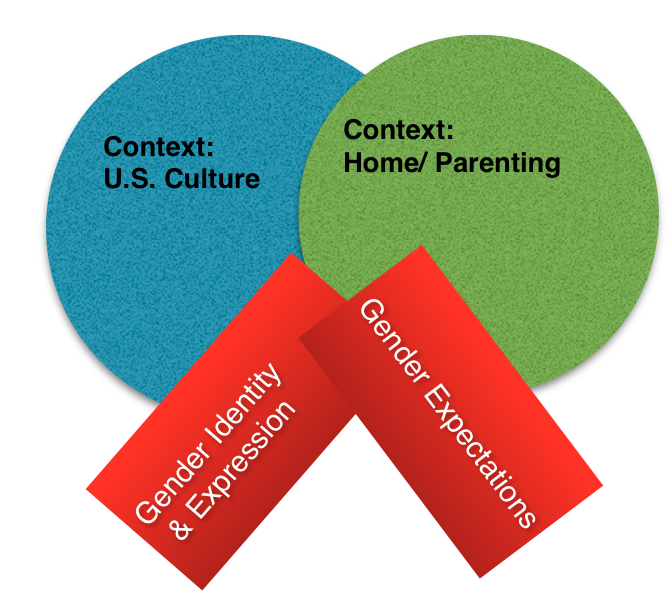Gender Identity & Expression
Gender identity is a cultural identity factor that can be expressed many different ways. The terms male and female are actually cultural constructs, that is, they are words that people made up to describe particular preferences, ways of being, attitudes, values, and behaviors. Some people don't conform to a binary gender, such as male or female, while others feel that they sometimes identify more as a male, while at other times they identify more with being female. These identities are often called gender non-conforming and gender fluid.
Confessions of a Bad Feminist
In this video Roxane Gay describes her experiences as an imperfect feminist. She encourages us to examine the multiplicity and complexity of identity (e.g., differing bodies, gender expressions, faiths, sexualities, class backgrounds, abilities, etc.) that makes each person's way of understanding and interacting in the world unique. Gay describes her personal experiences as a young brown woman whose voice was stolen within the context of sexual exploitation. Through deconstructing her identity Gay promotes a more inclusive form of feminism allowing her to no longer remain complicit in a culture that promotes inequality based on gender identity and expression.

Playback problems? This video is available on YouTube at youtu.be/Fxt_MZKMdes
Beyond the Gender Binary
Contemporary mental health professionals do not view people who identify as transgender as having a mental illness, instead we understand that there is normal variation in gender identity and expression. However, this perspective is a recent shift in the field of counseling. Dr. Margret Nichol’s explains, "Gender conformity treatment is considered unethical, thank God, because now we know that one of the worst things that you can do to these kids is to force them to conform."

Playback problems? This video is available on YouTube at youtu.be/4MUIYlaWVUk
I Don't Want Children. Stop Telling Me I'll Change My Mind
Having children is a choice, however, many people assume that having children is a part of life, rather than a choice. For people who are experiencing infertility, as well as couples who have chosen not to have children, cultural assumptions like "people who don't have children dislike children" are oppressive and potentially painful. Similarly, some people believe that a couple isn't a 'family' until they have children. Family is a social construct, and each family is free to define what it means to be a family. Counselors who assume that people should or must have children are at risk for posing their beliefs onto clients.
Playback problems? This video is available on YouTube at youtu.be/A_xXC37CDSw
Why we Need Gender Neutral Bathrooms
In this video Ivan Coyote deconstructs gender and describes experiences as a trans person who does not fit neatly into the gender binary. Coyote struggles with transphobia, gender identity, and gender expression within the context of public restrooms and change rooms advocating for accessible single stall gender neutral facilities in public spaces.

Playback problems? This video is available on YouTube at youtu.be/XAcARiiK5uY
A Call to Men
In this video Tony Porter describes his experiences as a man and father within the context of the socialization of men in U.S. culture. He deconstructs what it means to be stuck in a ‘man box’ (e.g., tough, non-emotional, sexually exploitive, and dominant over women) and how ascribing to rigid binary gender expectations influenced the way in which he parents his son and daughter. Porter concludes that problematic binary gender expectations need to be challenged in order to prevent these expectations from continuing to contribute to the oppression of both men and women within U.S. culture.

Playback problems? This video is available on YouTube at youtu.be/td1PbsV6B80
Teenage Fathers & Parenting
Why I Must Come Out
Playback problems? This video is available on YouTube at youtu.be/mCZCok_u37w
Teach Girls Bravery Not Perfection
Playback problems? This video is available on YouTube at youtu.be/fC9da6eqaqg
A Powerful Poem About What it Feels Like to be Transgender
Playback problems? This video is available on YouTube at youtu.be/S8DwxjDrNNM
Exploration Questions
- How would you describe your gender expression & gender identity?
- In what contexts, if any, do you feel that your gender expression & gender identity are privileged identities?
- In what contexts do you experience oppression because of your gender identity & expression?
- How does your gender identity & expression interact with other identities that you hold, such as your ethnicity, race, sex, sexual orientation, and age?
- What is your comfort level working with clients whose gender expression & gender identities differ from your personal understanding of gender?
- How comfortable are you talking about gender expression and identity with clients?
- In what situations might gender identity & gender expression be salient in the counseling relationship?
- How might you bring up gender with your counseling clients?
- How important do you think it is for counselors to be knowledgable and aware of their own understandings of gender expression and identity?
- What activities might counselors engage in to become more aware of how their own cultural identities impact their world views, values, biases, beliefs, ways of working with clients, and ways of relating to clients?
- What were your reactions to the videos on this page?
- Were there some you were drawn to?
- Were there any that elicited strong reactions?
- How did the videos on this page demonstrate the relationship between gender expression & identity and other cultural factors such as age, developmental life stage, family culture, the culture of the United States, and other cultures?
